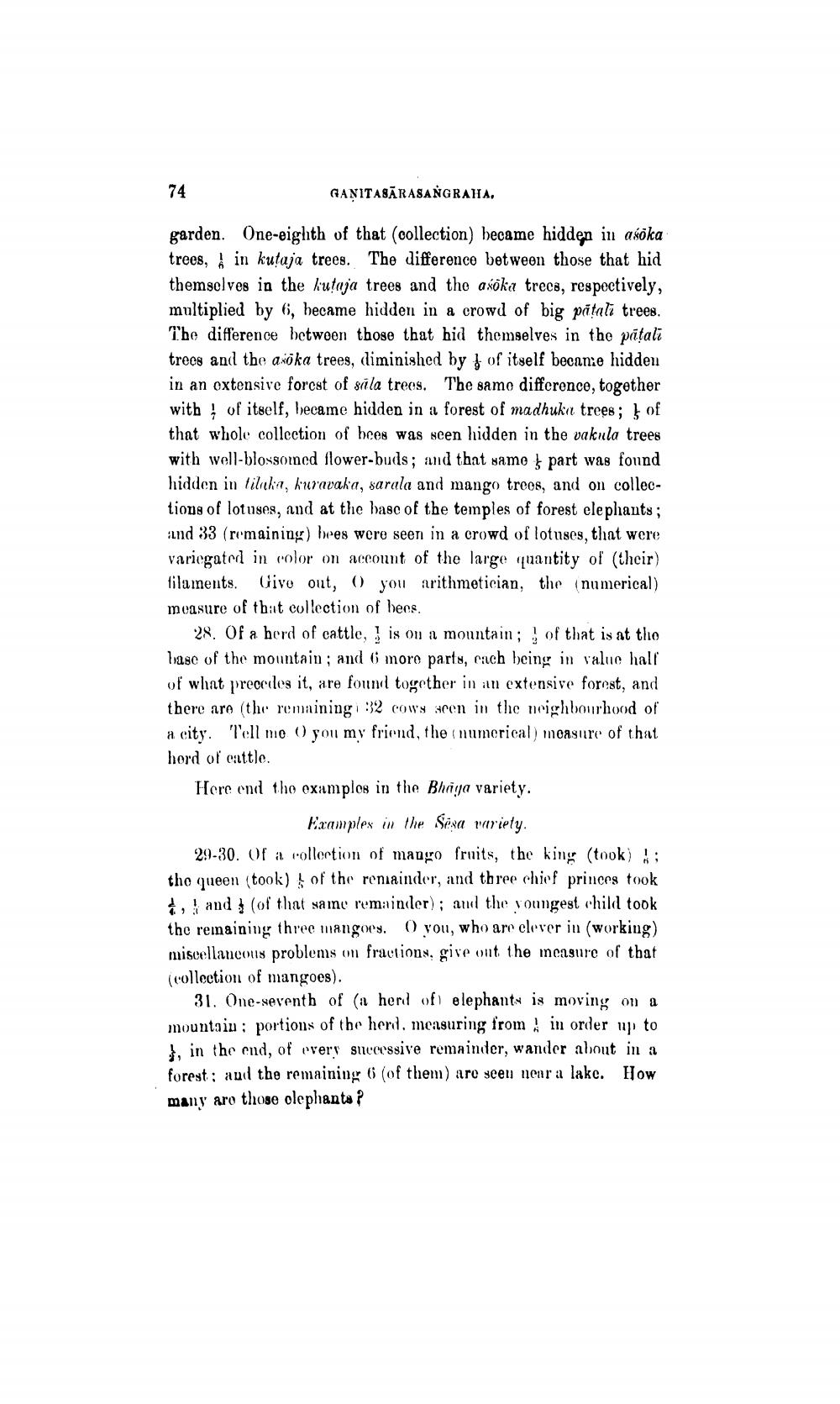________________
GANITASĀRASANGRAHA,
garden. One-eighth of that (collection) became hidden in asoka trees, & in kutaja trees. The difference between those that hid themselves in the kutaja trees and the axöka trecs, respectively, multiplied by 6, hecame hidden in a crowd of big patali trees. The difference between those that hid themselves in the patalī trees and the axöka trees, diminished by of itself becanze hidden in an extensive forcst of sila trees. The same difference, together with ? of itself, became hidden in a forest of madhuka trees; } of that whole collection of bees was seen hidden in the vakula trees with well-blossomed flower-buds; and that same $ part was found hidden in tilaka, kuravaka, sarala and mango trees, and on collections of lotuses, and at the base of the temples of forest elephants : and 33 (remaining) bees were seen in a crowd of lotuses, that were variegated in color on account of the large quantity of (their) filaments. Givo out, () you arithmetician, the numerical) moasure of that collection of bees.
28. Of a herd of cattle, is on a mountain; of that is at the lase of the mountain ; and 6 more parts, cach being in value hall of whnt preories it, are found together in an extensive forest, and there are the remaining 82 cows seen in the neighbourhood of a city. Tell me you my friend, the numerical) measure of that hord of cattle. Here end the examples in the Bhaga variety.
Examples in the Sera variety. 29-30. Of a collection of manyo fruits, the king (took) ; the queen (took) of the remainder, and three chief princes took
and 1 (of that same remainder); and the youngest child took the reinaining three mangoes. O you, who are clever in (working) miscellaneous problems on fractions, give out the measure of that (collection of mangoes).
31. One-seventh of (a herd of elephants is moving on a mountain; portions of the heri. measuring from in order to }. in the end, of every successive remainder, wander about in a forest; and the remaining 6 (of them) are seen neur a lake. How many aro those olephants ?




